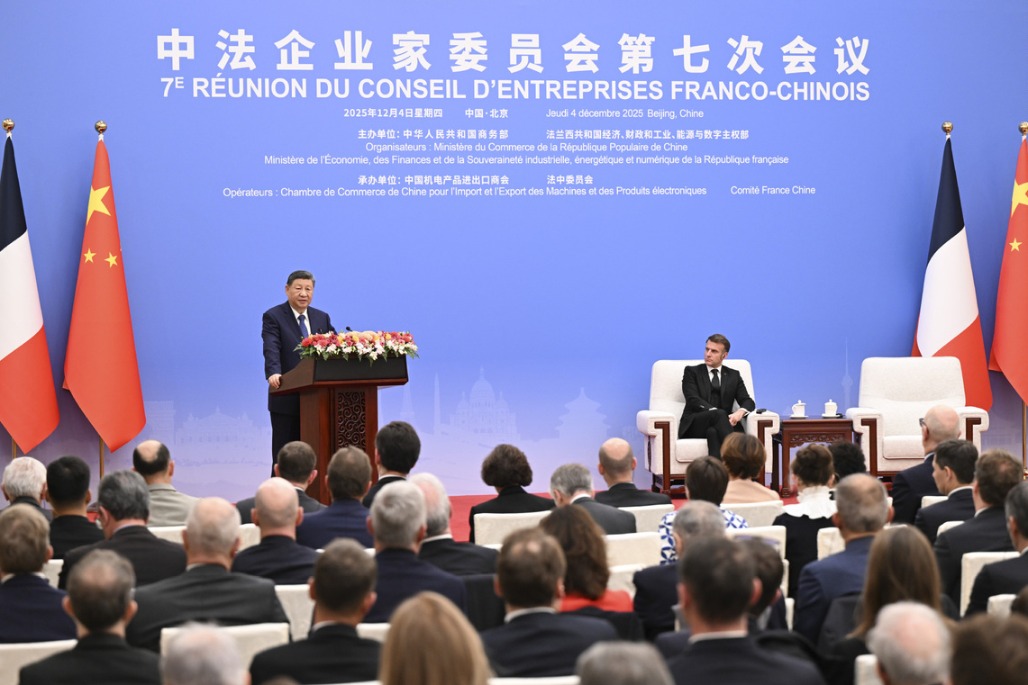Fruits of relations underscore importance and benefits of constructive engagement: China Daily editorial
chinadaily.com.cn | Updated: 2024-09-10 19:55

Although Singapore is a small city state geographically, it is a respected larger-than-life player on the world stage, thanks to not only its rags-to-riches development, but more importantly its hallmark strategic autonomy in handling foreign affairs that has helped it maintain stable relations with all parties.
As regards relations between China and Singapore, their relationship is characterized by strong economic ties, strategic cooperation and mutual respect. The strength of their ties is of great significance for the Asia-Pacific region.
It was therefore no surprise that Singaporean Minister for Foreign Affairs Vivian Balakrishnan stressed the time-honored close connections between China and Singapore during his visit to China on Sunday and Monday.
Singapore was one of the first countries to participate in and deeply integrate into China's economic rise more than 40 years ago. In the years since, the two countries have deepened their cooperation through important initiatives such as the Suzhou Industrial Park, Tianjin Eco-City and Chongqing Connectivity Initiative.
And while China provides opportunities for Singaporean businesses to tap into its vast market and manufacturing capabilities, Singapore serves as a key hub for Chinese investments in Southeast Asia.
Working closely together and learning from each other has undoubtedly provided important impetus for their respective modernization drives and enabled the two countries to forge a high-quality and forward-looking partnership. This has prompted the two countries to collaborate to enhance the connectivity and trade between China and Southeast Asia.
In this light, Singapore firmly supports free trade, and China and the Association of Southeast Asian Nations expanding two-way investment. It is willing to work with China to maintain the multilateral trading system with the World Trade Organization at its core, ensure the smooth flow of production factors and the stability of supply chains, as Balakrishnan said.
In his meeting with Balakrishnan, Chinese Foreign Minister Wang Yi emphasized that the two sides give full play to the role of dialogue mechanisms at all levels and in all fields, tap the potential of the New Land-Sea Trade Corridor, and create new high ground for their cooperation in the digital economy, green development and marine energy. Their cooperation in such emerging fields will create new development opportunities.
Meanwhile, the two sides should make good use of the mutual visa exemption policy, expand personnel exchanges, increase talent training, think tank media, youth, and local cooperation, and enhance the friendly relations between the two peoples.
Next year will mark the 35th anniversary of the establishment of diplomatic relations between Singapore and China. In their meeting in Beijing on Monday, Wang and Balakrishnan agreed that the two countries should take that occasion as an opportunity to expand their all-round cooperation.
The two countries share strategic interests in maintaining regional stability and security. In the face of the increasingly volatile world situation, especially as the United States and some of its allies are trying to take advantage of the territorial disputes in the region to sabotage Asia-Pacific solidarity, China and Singapore should plan well for important high-level exchanges in the next stage that can serve to provide strategic guidance for the China-Singapore cooperation to reach a higher level.
China supports the centrality of ASEAN in handling regional affairs, and is committed to building a China-ASEAN community with a shared future, upgrading the level of China-ASEAN free trade arrangements, and strengthening cultural exchanges, so as to gather greater synergy and inject sustained momentum into regional integration and economic globalization.
With the United States up to its tricks in Asia, it is important that Singapore and China, with their shared belief in Asian values, multilateralism and free trade, maintain their stabilizing relationship, which serves as a cornerstone for regional cooperation, economic development and stability in the Asia Pacific.
In the face of increasing geopolitical uncertainties, their partnership exemplifies the potential for mutually beneficial relationships in the region, and underscores the importance of constructive engagement for the broader Asia-Pacific community.
























